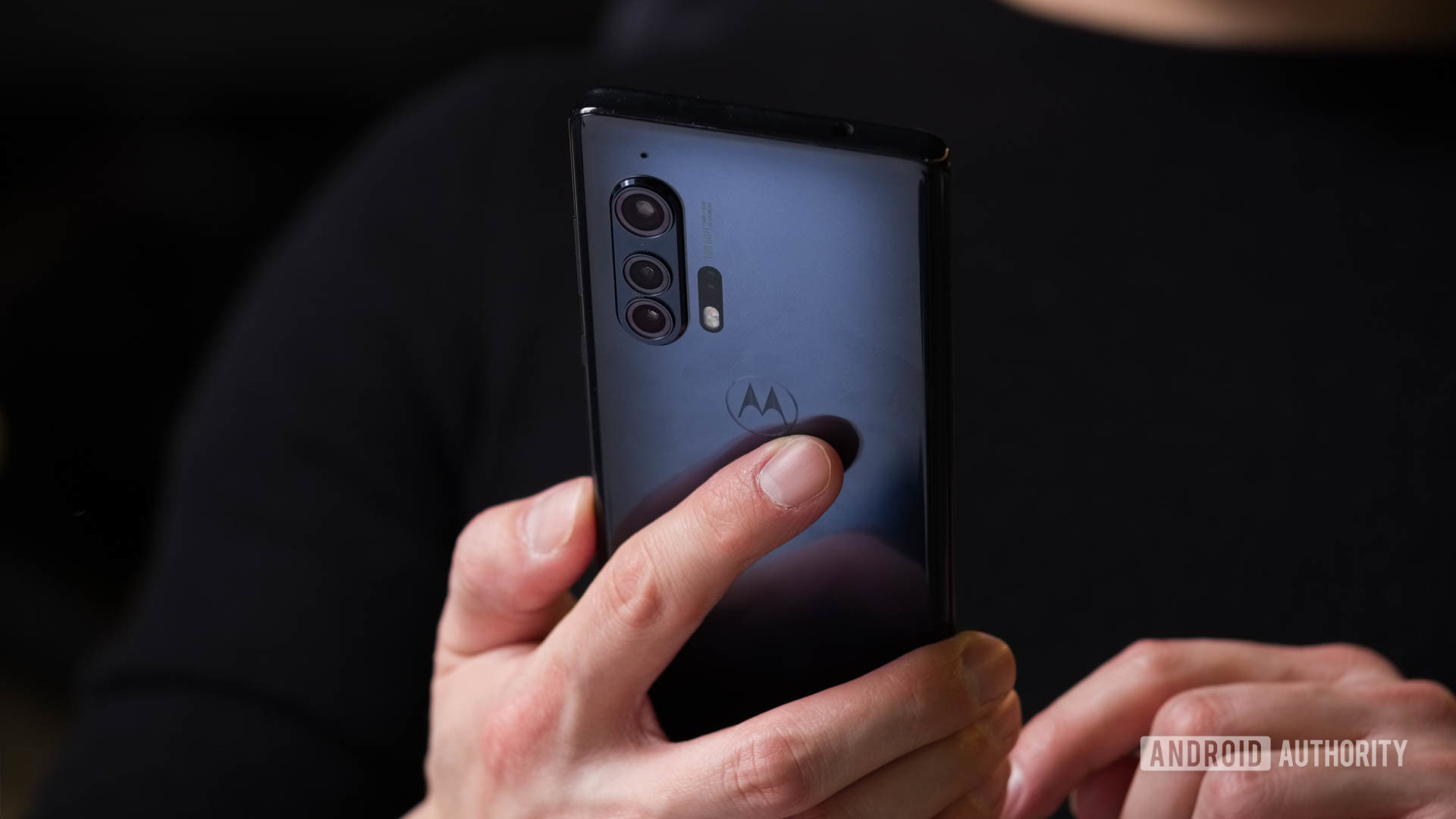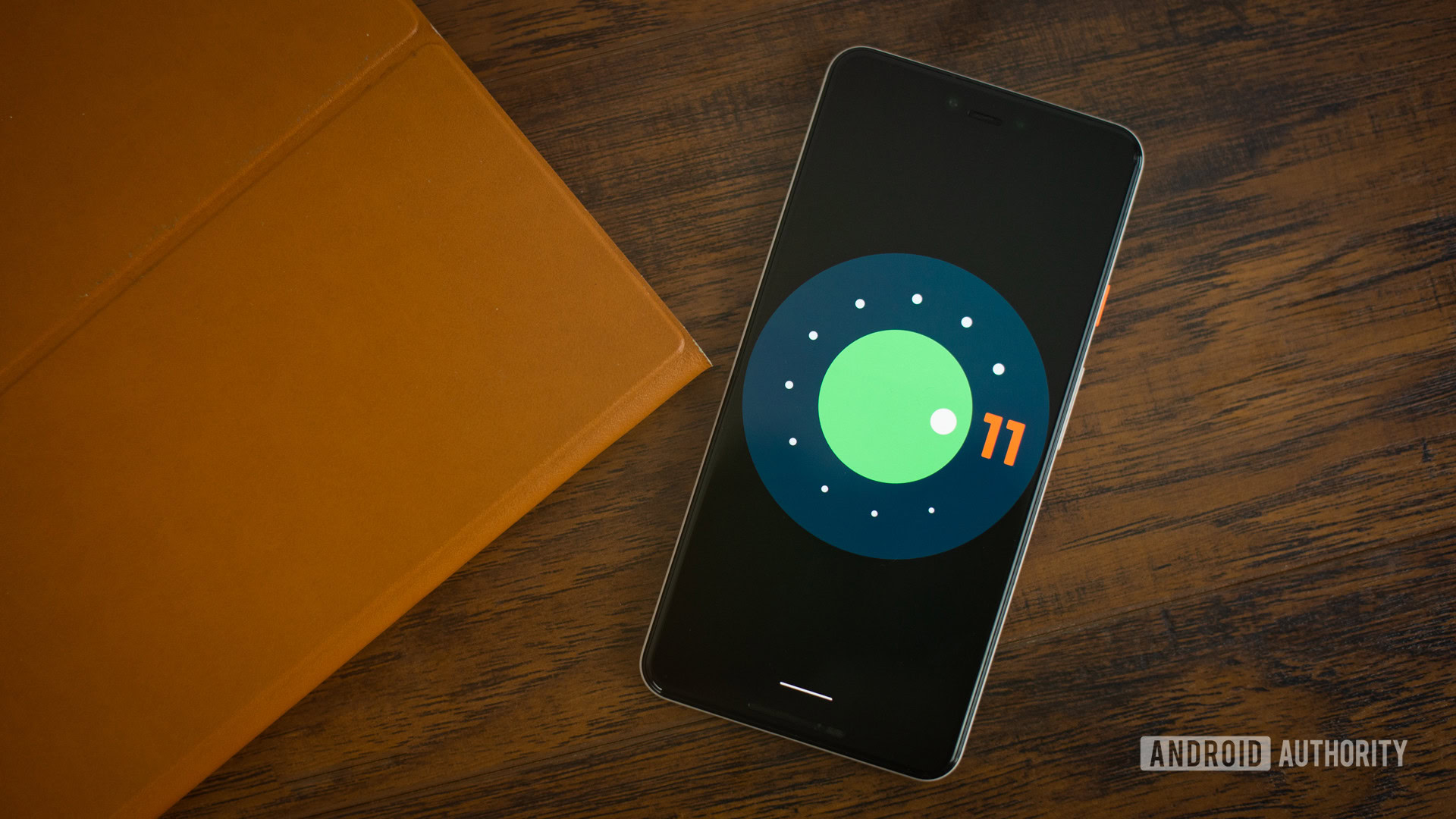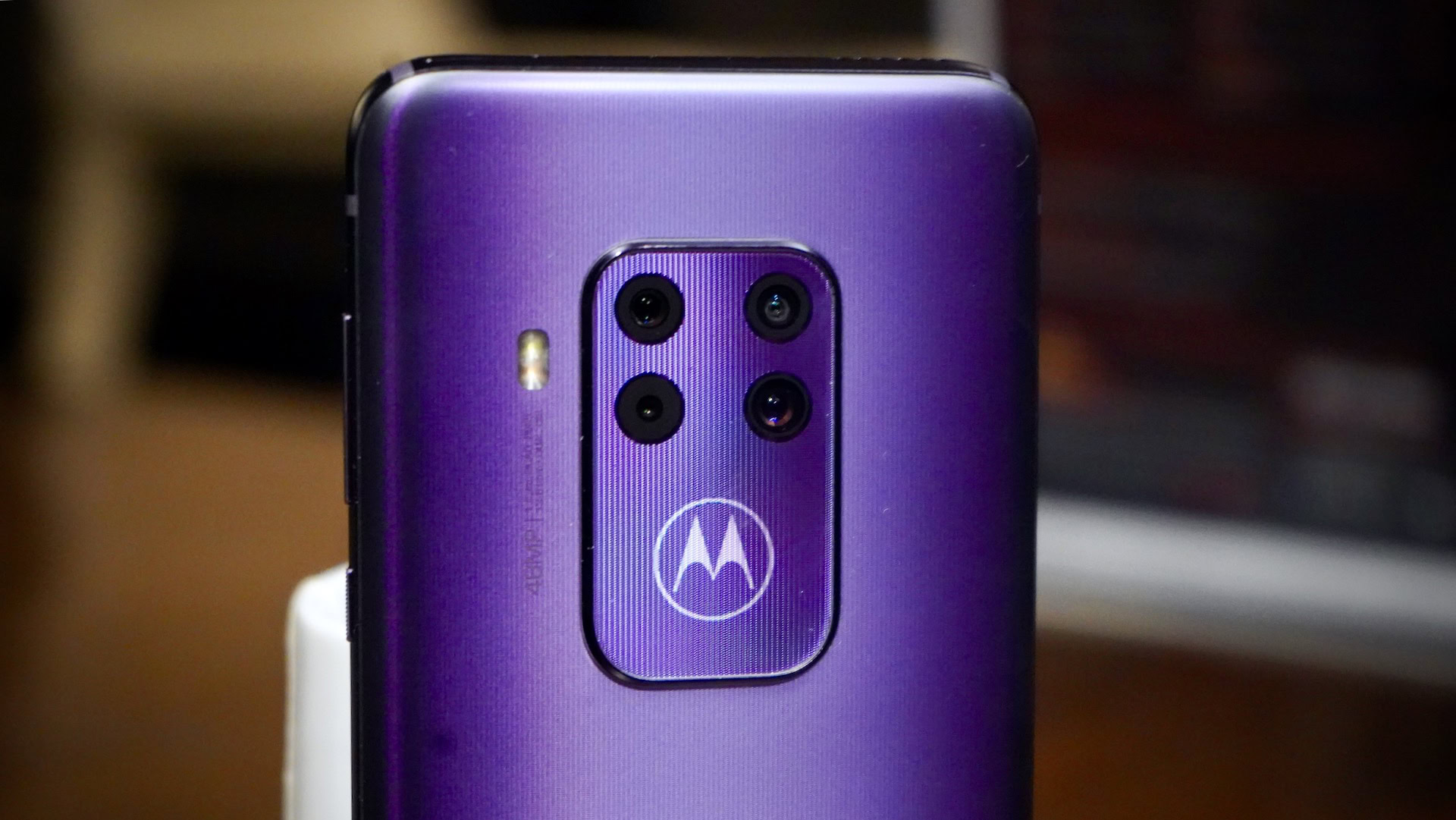Affiliate links on Android Authority may earn us a commission. Learn more.
Motorola's promise of just one major update for the Edge Plus is unacceptable
Published onMay 11, 2020

Update, 12 May, 2020: Good news! Following the publication of this article, Motorola has now promised the Edge Plus will receive “at least two Android OS upgrades.” Check out the full story here.
As an early Android pioneer and one of the most innovative companies in mobile, Motorola has a long and proud history in the smartphone sector.
The Moto G range has long ruled the budget market in the US, there have been some interesting modular experiments with the Moto Z line, and everyone immediately fell in love with the rebooted foldable Motorola Razr… at least until they got their hands on one. But for a long time now, Moto fans have been pining for a true Motorola flagship. A high spec beast, capable of going toe to toe with the finest from Samsung and Apple.
Enter the Motorola Edge Plus.
It’s a curvy, shiny beauty and just look at those specs. A 6.7-inch OLED screen with a 90Hz refresh rate. A Snapdragon 865 SoC with a mighty 12GB of RAM. A triple-lens camera boasting a 108-megapixel main lens. An enormous 5,000mAh battery. It even supports 5G (sub-6GHz and mmWave) and Wi-Fi 6.
With specs like these, you’d think Motorola’s comeback flagship would be future-proofed enough to last you at least two to three years and even beyond. However, while there are lots of big, impressive numbers in there, the number of Android upgrades Motorola is promising is just one. One.
This phone starts at $999, but it’s only guaranteed to get one major OS update, later this year, to Android 11. You won’t find any mention of this on Motorola’s website, but a Motorola spokesperson told Wired‘s Julian Chokkattu:
We will support with software updates as frequently and for as long as we feel it benefits our consumers. While we don’t have an absolute commitment to numbers of upgrades, Edge consumers can expect security updates every other month and an upgrade to Android 11 OS this year.
Motorola hasn’t technically ruled out further updates, but it won’t promise them either. It expects you to go ahead and spend $999 on a phone that may not be properly supported beyond the end of the year.
That’s flat out ridiculous.
Why updates are important

The established norm for a new Android flagship is to promise at least two years of platform updates. Some manufacturers will go beyond that in practice with their top phones, even though it may take them a long time to do it. Samsung has updated the Galaxy S9 to Android 10, for example, but the Galaxy S8 will likely never receive an official update to Android 10. Meanwhile, OnePlus is rolling Android 10 out to the OnePlus 5 and 5T.
The thorny issue of Android updates has been plaguing Google for years now, so much so that it broke out security updates into a separate stream from platform updates in an attempt to streamline the update process. Security updates are pushed out monthly, while version updates come once a year. And while updates aren’t sexy, they are important.
“I don’t think the average consumer knows, let alone cares about OS updates and software support,” Tuong H. Nguyen, Senior Principal Analyst at Gartner, told Android Authority. “As in, it’s not part of the buying decision.”
The trouble is that they should care because software updates can make a big difference to how secure your device is and how pleasurable it is to use in the longer term.
The established norm for a new Android flagship is to promise at least two years of platform updates.
Take platform updates first. Google often makes improvements to the user interface, which can give older phones a fresh and modern feel. Platform updates also ensure your phone keeps up with where Google is going in its suite of apps. Beneath the surface, new Android versions offer greater efficiency and lots of little optimizations. They can reduce power demands, boost battery life, improve connectivity, introduce better encryption, and give you greater protection against any potentially malicious or just personal data-hungry third-party apps.
The main takeaway is that platform updates can dramatically extend the life of your phone. Just ask all those iPhone owners still rocking older models.
As for security updates, we have a great explanation on what they are and why they matter, but at the simplest level, they help keep cybercriminals out of your phone. Unsurprisingly, Google rolls them out immediately to its Pixel phones, but the rest of the Android pack is a little slower. Samsung does a pretty decent job, at least with its top phones, Nokia tends to update quickly, Sony and OnePlus are in the middle of the pack.
Guess who’s bringing up the rear? Yep, it’s Motorola.
A poor track record

When Google bought Motorola in 2012, it was quick to ring changes and one of the things it implemented was swift and regular software updates. Phones like the Moto X only had weeks to wait for new Android versions. Lenovo acquired Motorola in 2014 and that commitment has been steadily eroding ever since.
The Motorola of today frequently skips security patches. It has been called out for this several times over the years, but it still lags behind other manufacturers. It also has a nasty habit of quietly dropping support for phones altogether. It has become common for devices like the Moto E5 not to receive major OS updates at all, while other devices, like the Moto G series get security patches intermittently, instead of monthly.
Regular and timely software updates are a reasonable expectation.
Motorola promised Android 9 Pie for the Moto Z2 Force, but then broke that promise, limiting the update to the Verizon model. The Moto Z4 only recently received its update to Android 10 and looks unlikely to get Android 11, with only one version update reportedly planned. That’s going to be particularly painful for anyone who splashed out on the 5G mod hoping they would have a device to serve them for years to come.
There’s a trend here. Motorola launched the Motorola One series as part of Google’s Android One program, which guarantees three years of monthly security updates and two years of Android version upgrades. Devices must meet these update commitments to be part of the program. But then it decided the Motorola One Zoom would not be part of the program, and, despite sticking with the “One” moniker for both it and later devices like the One Macro and One Hyper, dropped Android One and the accompanying update guarantees with no real explanation.
Sadly, many manufacturers skip updates or discontinue Android upgrades within a few months of releasing mid to low-end devices. All of the phones listed above fall into this sub-flagship price bracket, which has led many to give Motorola a pass. However, just because it’s common practice doesn’t make it right, and it shouldn’t be acceptable to do this with budget phones, but it’s especially egregious when you’re paying a flagship price.

Regular and timely software updates should be a reasonable expectation. It’s part of what makes Nokia’s Android phones so attractive as HMD Global’s phones receive swift version updates and monthly security patches. It’s also one of the ways Google and Apple are shaking up the cheaper end of the market with the Pixel 3a and the new iPhone SE. These are $400 phones that have better software support, and the prospect of a longer, more useful life, than many flagships.
There are lots of big, impressive numbers in there, but the number of Android upgrades Motorola is promising is just one.
Sadly, Motorola is not the only manufacturer doing this with cheaper phones, but to limit a flagship to one update would be setting a new and most unwelcome precedent. It’s worth noting that the vague wording in Motorola’s promise doesn’t preclude more updates. With that in mind, there’s still hope Motorola will do the right thing and provide the phone and consumers who buy the Edge Plus the support they deserve.